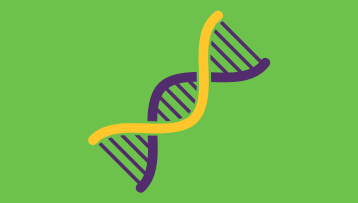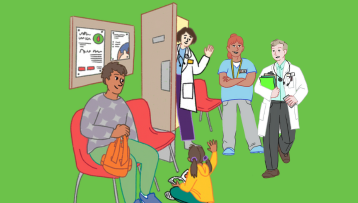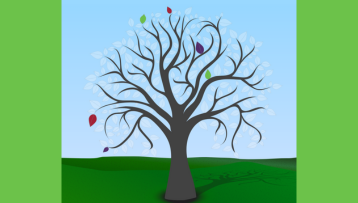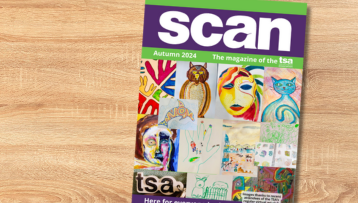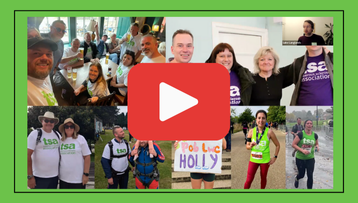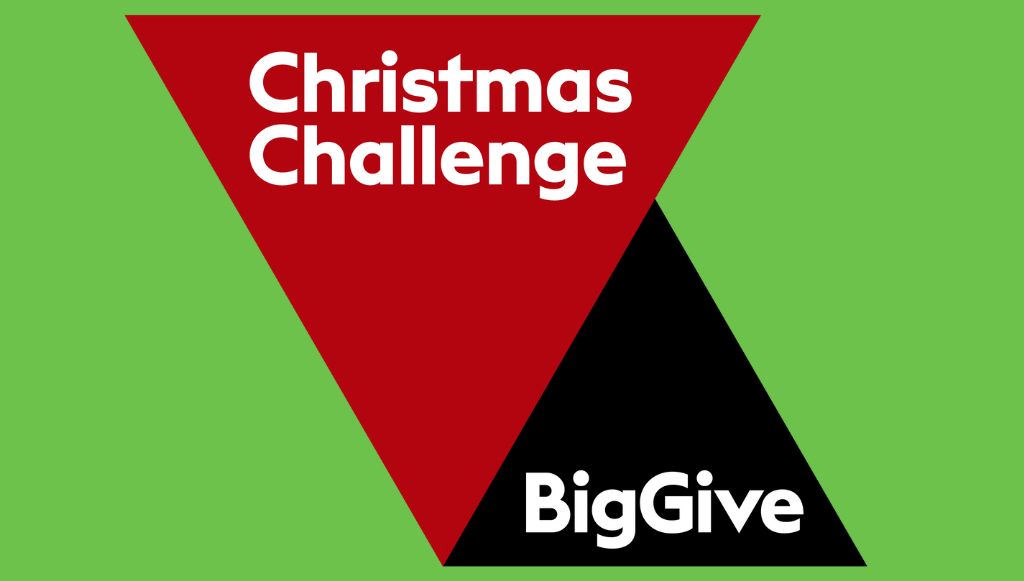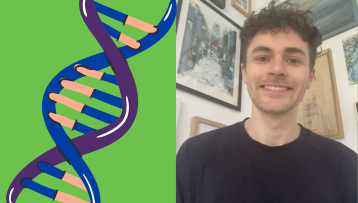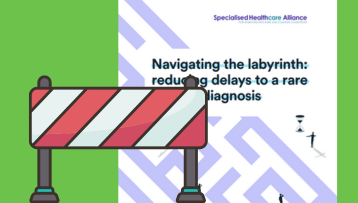Ever since our launch almost 50 years ago, the TSA has been a proud and important funder of world-leading research into all aspects of TSC. Measuring the impact of funded research is becoming increasingly important for organisations who fund research, like the TSA.
The TSA follows strict and important guidelines to ensure that we only fund research that has the greatest possible benefit to the lives of people affected by TSC. By highlighting the clear and actionable steps we take to measure the impact of TSA-funded research, it’s clear to see how every penny and pound that we put into research is maximised.
Annual progress reports
Once every year, we request an annual progress report to the researchers who we have provided funding to. These reports provide us with lots of important information that helps to ensure that the researchers are staying on-target and are fulfilling their TSC research targets. The reports include:
- How the research is placing people living with TSC and their families at the heart of the project’s planning, conduct and results
- The benefits of the project to people living with TSC and their families
- Major milestones achieved by the research so far
- Whether the amount of money spent on the research project reflects what was expected in the researcher’s proposal
- The progression of the research to date, including how the project is meeting its objectives (and if not why)
- If the research is running to its expected timings
- Details of any presentations that have been made to professionals, such as TSC researchers, about the project (for example, at a TSC research event)
In addition to annual progress reports, we ask researchers of newly funded research to return an end of first year report. We also ask for reports when a piece of research is coming to an end. All of this ensures that the data we capture is as accurate and as up-to-date as possible.
Researchfish – tracking the impact of funded research long after it’s finished
As well as requesting regular reports from researchers who we have provided funding to, we use a specialised platform called Researchfish to keep track of TSA-funded research.
Researchfish is an online system used to gather information on the aims, outcomes and potential next steps of TSC research. Importantly, Researchfish allows us to report on and understand what practical impact that research has (to ensure that it goes beyond academic interest only).
Through Researchfish, we can track things that progress reports might not capture, as some of these things happen after a research progress has completely finished. We follow updates on TSA-funded research through Researchfish for up to five years after a project has ended.
Areas we look at on Researchfish include:
- To what extent people with TSC and their loved ones are being involved in research
- The number of academic publications that a piece of research we have funded has featured in
- Important collaborations between TSA-funded researchers and other TSC researchers around the globe
- Further funding of research that has happened because of the TSA’s initial funding of a project
As well as the TSA, major organisations that use Researchfish include the UK Research Councils, UK universities and research centres, National Institute for Health Research, and over 100 medical charities such as the British Heart Foundation, Cancer Research UK, Wellcome Trust and Versus Arthritis.
Researchfish also benefits researchers themselves, with the platform allowing researchers to submit updates to multiple funders at the same time. This means that the often lengthy paperwork involved in research can be reduced, so that TSC researchers can focus on research itself.
Updates from our latest research progress reports
In 2021, the TSA’s research portfolio of previously committed awards consisted of 11 live projects. Covid-19 meant that no new projects were awarded in 2020 or 2021. The impact of covid-19 has also impacted on the overall activities of the most recently funded projects.
Of the live research projects, one confirmed being published four times across two different academic journals (meaning that the research is of interest to be read and learned from by other researchers). Four other research projects reported that six journals were either reviewing the work or were in preparation to publish. Three research projects said that eight publications were planning to publish articles about them!
Four projects reported 11 other forms of engagement with the research world, including presentations at academic conferences and professional meetings.
One project highlighted that the TSA’s funding subsequently led to two more organisations also agreeing to provide them with funding. Two other awards are also in the process of or planning to apply for further funding with other organisations.
Considering the disruption caused by covid-19, all TSA-funded research projects from our 2021 research portfolio are doing well.
Researcher quotes from their 2021 annual progress reports
“The results of our functional assessment of specific TSC1 and TSC2 variants are of direct relevance to individuals who carry these variants. The functional data can help establish or exclude a diagnosis, and provides guidance for screening, monitoring and family planning” – Dr Mark Nellist, Erasmus MC
“Having a new therapeutic strategy that targets disease aspects of TSC would likely benefit patients in the future. We are excited by the prospect that we have found a new drug target in TSC, one of which will have additional benefit to the currently used mTOR inhibitors. This early work builds towards our main goal: to determine whether targeting Ref-1 and/or STAT3 in combination with mTOR inhibitors will have a more marked repression of tumour growth and will more fully block inflammatory signals.” – Professor Andrew Tee, Cardiff University
“THANK YOU FOR ALL THE SUPPORT! We hope the TSC community will enjoy the colourful Annual Reports prepared. We deliberately prepared attractive reports to make sure the project updates are as accessible to anyone in the TSC community as possible.” – Professor Petrus de Vries, University of Cape Town
“It is hoped that the project will benefit the TSC community by highlighting the unmet psychological needs of children and young people with TSC and evidence the contribution of psychological therapies. The findings from the study will contribute to the clinical and academic fields by identifying whether remote talking therapy helps to reduce distress and improve quality of life in children and young people with TSC. This will, in turn, help to identify areas for further research and opportunities for service development. The study may have economic implications for service planning as remote delivery allows clinicians to support patients in geographical locations where services may not be available or accessible.
The TSA have been very supportive in setting up this study including study design, protocol completion, etc. We would like the TSA to continue supporting the study team and liaising with other TSC clinics to enhance recruitment.” – Dr Sam Amin, Bristol University
“This research into the communication mechanisms of TSC-deficient cells will advance our understanding of the biology of the condition. Identifying signalling mechanisms which contribute to TSC cyst development and progression may reveal crucial pathways which can be targeted as a new therapeutic option. This could impact on the health and wellbeing of TSC patients, as well as the wider TSC community. We have also been able to access patient plasma through the TSC Alliance-run biorepository. This has allowed us to expand our cell line studies to EVs in patient blood samples. We hope this will allow biomarkers of TSC to be identified.
The impact to date has been 1) Increased knowledge and understanding: We now have a much clearer view of the characteristics of EVs secreted by TSC cells and the protein cargo contained within them; 2) Building capacity: This work is training a research scientist in up-to-date techniques, which builds capacity in the number of trained scientists for future TSC research.” – Dr Elaine Dunlop, Cardiff University
Make a one off or regular donation
£10 Can allow us to send a welcome pack to a family who has just received a life-changing TSC diagnosis, ensuring that they do not go through this time alone.
£25 Can help us develop materials that are included in our support services, flagship events or campaigns.
£50 Can provide laboratory equipment for a day’s research into the causes, symptoms, management or treatment of TSC.
To provide help for today and a cure for tomorrow













